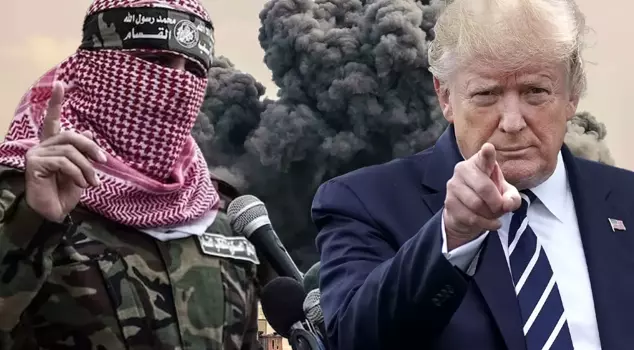
11.02.2025 14:40
Hamas official Sami Abu Zuhri stated that Israeli hostages could only return home from Gaza if a ceasefire is respected, rejecting the "language of threats" used by U.S. President Donald Trump, who said that "hell would break loose" if the hostages were not released.
Hamas official Sami Abu Zuhri stated in an interview with Western media that the language of threats has no value and only complicates matters, and he said, "Trump must not forget that there is an agreement that both sides must respect and that the only way to bring back (Israeli) prisoners is through this."
United Nations (UN) Secretary-General Antonio Guterres, in a statement made through his official social media account, said that Israel's increase in violent incidents in the West Bank and the resumption of attacks on Gaza must be avoided "at all costs" because it would lead to "a great tragedy." Guterres called for Hamas to continue its plan for the release of hostages. Both sides must fully comply with their commitments in the ceasefire agreement and must resume serious negotiations," he said.
ARAB WORLD REACTION TO TRUMP'S WORDS
Hamas has begun to gradually release some hostages as part of the ceasefire that has been in effect since January 19. However, Hamas, which accuses Israel of "violating the terms by continuing its attacks on the Gaza Strip," has postponed the release of 20 hostages until the next announcement. So far, Hamas has released 13 of the 33 hostages agreed to be released in the first phase of the ceasefire.
U.S. President Trump, a close ally of Israel, stated in a statement yesterday that "Hamas must release all of its hostages by noon on Saturday, February 15, otherwise he would propose the cancellation of the Israel-Hamas ceasefire." Trump's remarks angered Palestinians and Arab leaders. Many Arab countries condemned Trump's statements. According to reports in U.S. media, Trump has attempted to "impose his vision" on Gaza, which has been devastated by Israel's military assault, suffering from shortages of food, water, and shelter, and in need of external aid, undermining U.S. policy that supports a two-state solution in the region. Meanwhile, the idea of a two-state solution has weakened since 2014, when attempts to establish peace between Palestine and Israel in one of the world's most unstable and violent regions came to a halt.
FORCIBLE RELOCATION OF A PEOPLE UNDER MILITARY OCCUPATION IS A WAR CRIME
Trump had stated that after months of war, Gaza, where many homes have turned into piles of cement, dust, and twisted metal, should be taken over by the U.S. and more than 2 million residents should be relocated, thus making the Palestinian settlement "the Riviera of the Middle East." According to the Geneva Conventions of 1949, the forcible relocation of a people under military occupation is a war crime and is prohibited. The Gaza war, which began after Hamas attacked Israeli territory on October 7, 2023, has been on hold since mid-last month under a ceasefire agreement reached between Israel and Hamas with the mediation of Qatar, Egypt, and the U.S.
AMMAN GOVERNMENT'S CONCERNS
According to comments in U.S. media reports, Trump's ideas, which include a threat to cut aid to Egypt if Palestinians are not accepted, have added a new complexity to the sensitive and volatile regional dynamics, including the "fragile" ceasefire between Israel and Hamas.
Trump's mention of relocating approximately 2 million Gazans poses a dangerous approach to the nightmare of mass expulsion of Palestinians from both Gaza and the West Bank and reflects the long-held vision propagated by Israelis that Jordan could serve as an alternative Palestinian home. The Amman government's concern is further heightened by the escalating violence along the West Bank border under Israeli occupation, where the hopes of Palestinians for statehood are rapidly eroding due to expanding Jewish settlements.